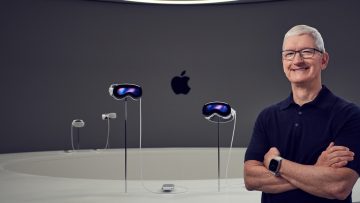Apple has been working on a custom iPhone modem for years, and the company’s efforts are ongoing. Apple has reportedly sunk billions of dollars and millions of working hours into the project, with thousands of engineers working on the chip. Apple’s first iPhone modem isn’t ready for the iPhone 16 series, and it reportedly won’t be ready for several years.
But Bloomberg’s Mark Gurman says Apple will continue to develop the custom chip. The modem might be more important to Apple’s plans than simply helping Apple end its deal with Qualcomm.
As a longtime iPhone user, I don’t care much about which modem Apple uses as long as it delivers fast and reliable connectivity. However, I’d love it if every product Apple shipped had a built-in modem ready for always-on data support — especially my MacBook.
Apple sells cellular versions of the Apple Watch and iPad, but there’s no cellular MacBook. It’s an option I’d love to have. I’ve probably tethered to my various iPhone models for hundreds of hours over the years, but I’d appreciate a built-in option on the Mac, especially in the age of eSIM functionality.
A custom iPhone modem that could be easily transplanted into the Apple Watch, iPad, and MacBook should be even more power efficient than Qualcomm, as Apple would find ways to make it more efficient. That would be great news for the iPhone battery and the batteries of all other connected devices.
Moreover, since Apple would control the manufacturing process of the custom iPhone modem, the chip could be significantly more affordable. This might allow Apple to offer additional features to users or even cut the prices of some of its products. One move I’d like to see in the coming years is Apple equipping all its devices with cellular options.
We’re entering the age of AI, which will require a constant internet connection. Even on-device AI needs access to the internet to find answers to some of the user’s requests or perform actions on their behalf. I’d love it if all Apple Watch and iPad models had built-in cellular connectivity.
Gurman doesn’t mention such plans for the custom iPhone modem in his Power On newsletter. He also acknowledges that the effort might go unseen for most iPhone owners if the custom Apple chip works flawlessly. But his report notes that Apple plans to eventually create a wireless chip that combines cellular, Wi-Fi, and Bluetooth connectivity. This could improve reliability and battery life.
Additionally, Apple might consider including all these features in the iPhone’s main application processor. This scenario would help Apple improve costs and save space inside the iPhone that could go towards other components.
Merging the modem with the iPhone’s A-series chips could also mean that all M-series chips that power iPads, MacBooks, and the Vision Pro could come with built-in modems. All of this is speculation, however.
Apple’s iPhone modem deal with Qualcomm runs through March 2027. The first iPhones featuring Apple 5G modems might launch next year at the earliest. Rather than going for an all-out approach, Apple should gradually replace Qualcomm modems in its products.








